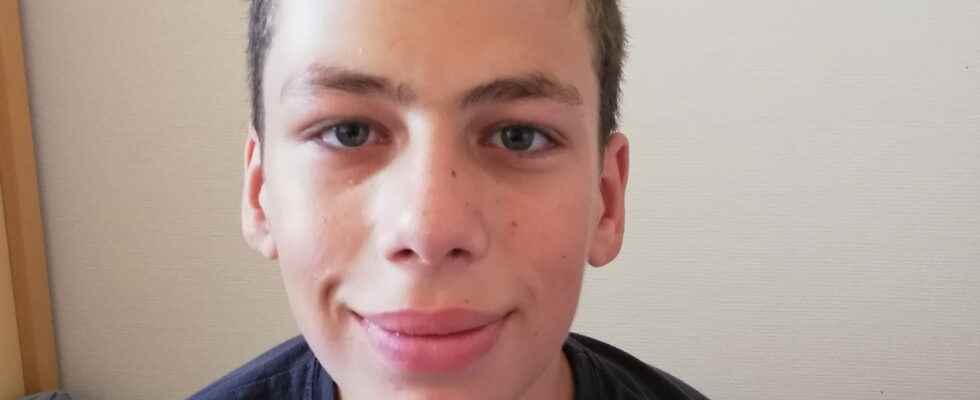On the occasion of International Epilepsy Day on February 13, we spoke with Lucas, 15, epileptic and intern at the specialized college of Toul Ar C’Hoat, in Finistère. His wish: that epilepsy be better known to fight against prejudice.
I’epilepsy concerned 650,000 people in France of which 100,000 children. Among them, Lucas, 15, a 4th grade student at the Toul Ar C’hoat college, an establishment specializing in the reception and support of epileptic children, based in Châteaulin in Finistère (29). Lucas has had epilepsy since birth. “but the seizures started when i was 3 years old“ he tells me at the beginning of our interview. Today he has one or two per month “rather on waking up”. “Sometimes I feel them coming, my whole body is shaking, sometimes it’s only a part, like my legs, which are shaking”. On the other hand“Lucas has no absences” says Gwen Garo, his instructor-educator, seated next to him. Epileptic “absences” correspond to a very short loss of consciousnesse (a few seconds) where the patient stops his activity and resumes it where he left off when the absence ends.
“Often epileptics are thought to be lazy”
Lucas arrived in Toul Ar C’hoat in 6th grade, on the decision of his parents. He finds them every 15 days when he returns home to Eure, Normandy. A difficult separation but “it’s a chance to come to the boarding school” explains the young boy. “We are much fewer in class than if I was in a traditional college. Classes are easier to follow because the teachers take the time to explain to us.” These teachers are specifically trained to support them: “Often epileptics are thought to be lazy (in classic establishments, editor’s note) when they are not, defends Gwen Garo. When they have absences, they miss a lot of information without necessarily feeling these absences or their crises, it’s difficult for them. They also have a lot of dys disorders associates.” In Toul Ar C’hoat, children can “sit down, take a breather, go back to the basics of teaching then resume their education in a classic cycle, after college for example” she continues. The children stay on average 2 and a half years in the institute. They are surrounded by a team of professionals: neurologist, neuropediatricians, educators, speech therapist, psychomotor therapist, psychologist… “It reassures me to be there, there is no other people’s eyes” Lucas launches. A not always benevolent look at a disease associated with many prejudices.
“Most young people have been bullied”
“We always have the same cliche of the epileptic seizure that scares while epilepsy is not just the crisis where you fall to the ground” he argues. “We need to change our outlook on epilepsy, confirms Gwen Garo. I started working at Toul Ar C’hoat a dozen years ago, when I said that I had found this position, I was told “Oh with the weaklings?”. Epilepsy is a disease that is poorly understood, a disease that we do not talk about everyone knows someone affected.” In addition to stares, some children with epilepsy also experience harassment. “I didn’t have any trouble at school (primary, editor’s note), I didn’t get harassed” Lucas informs me spontaneously. “In primary school, bullying is rarer. But most young people who reach the age of 13-14 have been bullied at school, rebounds the instructor-educator. Here, they are all unitedif for example one of them has an epileptic fit.”
Regain self-confidenceaccept the gaze of others, stabilize his illness, getting up to speed academically are the driving forces of Toul Ar C’hoat. For Lucas, the challenge is “may one day epilepsy be better known for give other epileptics the chance to be treated and to perhaps be able to come to Toul Ar C’hoat to feel better. If they get that chance, take it.”
Thanks to Lucas and Gwen Garo for their testimonies collected on February 6, 2023. Toul Ar C’Hoat Institute: ITEP specialized in epilepsy. Road to Toul Ar C’hoat. 29150 Chateaulin. 02 98 86 02 02.
